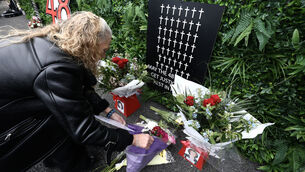Adoption rights campaigners want new agency to deal with tracing requests

Mari Steed of the Adoption Rights Alliance said: 'I think the players to date are just too entwined in the past horrible history to be effective regulators of our information.'
Adoption rights campaigners have called for an entirely new agency to deal with access to information and tracing requests.
The Oireachtas children's committee has been told that Tusla and the Adoption Authority of Ireland (AAI) should not continue to play a part in adoptees' lives or make determinations on access to information.










